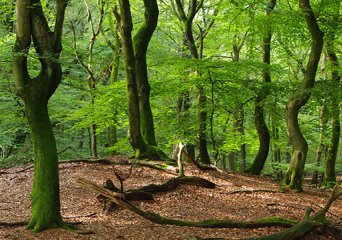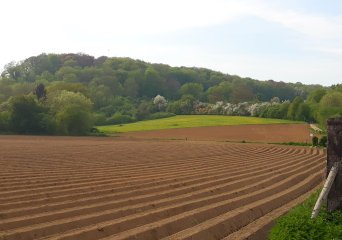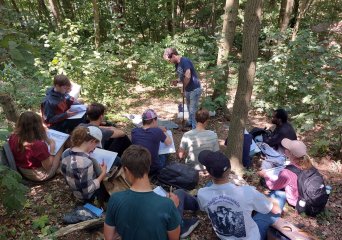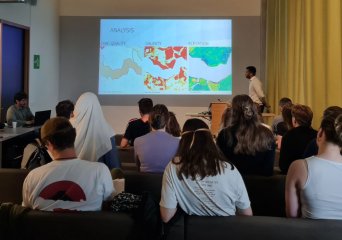Environmental Sciences

Aquatic Ecology and Water Quality Management
We aim to generate novel insights that can help preserving and restoring marine and freshwater ecosystem services. We take a systems approach linking physical, chemical and biological processes across scales.

Cultural Geography Group
The Cultural Geography (GEO) chair group is committed to social theory in all its spatial articulations. The group advances creative, critical-constructive scholarship through exploring the ecological and social challenges facing all life on earth. Researching space, place and culture, engaging with current, historic and future dynamics of societies globally, the group pays special attention to questions of inequality, exclusion, mobility, plurality along with deploying critical tourism studies to all aspects of social and environmental sciences, unravelling relational complexities in wilderness to urban settings. Thereby the group translates knowledge into practical action in four closely related fields of application. These are: health & care, tourism, nature and landscape.

Earth Systems and Global Change Group
Humans have profound influence on Earth's systems: land, water, climate, and nature. This interaction, termed Global Change, drives environmental and societal shifts worldwide, impacting all life on our planet. Through our work, we contribute to a better understanding of the challenges and to pioneer actionable solutions.

Forest and Nature Conservation Policy Group
FNP focuses on the political, social-economic and cultural dimensions of forests and nature. It covers current themes such as deforestation, forest transitions, climate change, biodiversity conservation and landscape management in the global North and South.

Forest Ecology and Forest Management Group
We aim to understand the structure and functioning of forest ecosystems and their responses to changing environmental, biotic and social conditions, and to apply this knowledge for the development of sustainable forest resource use systems.

Hydrology and Environmental Hydraulics Group
The Hydrology and Environmental Hydraulics Group aims to advance fundamental understanding and prediction of hydrological processes in river basins, aquifers, and deltas in support of water management

Water Resources Management
The Water Resources Management (WRM) group is engaged in interdisciplinary research and education at the intersection of water, technology and society. We study integrated water resources management and governance questions around the world, focusing on how technological choices, socio-ecological dynamics and cultural-political processes produce specific patterns of water use and allocation.

Laboratory of Geo-information Science and Remote Sensing
The mission of the Laboratory of Geo-information Science and Remote Sensing is to improve spatial competences for a sustainable world through research and education.

Soil Biology Group
The Soil Biology (SBL) group regards soil life as key to sustainable (agro)ecosystems. We study the role of soil organisms in element (carbon, nutrient) transformations in soils. Our research is embedded in three themes: fertile soils; soil functional biodiversity; and soils and climate change. We have state-of-the-art laboratories which facilitate this research, both engaging in developmental research through PhD, MSc and funded projects and requested routine analyses for external clients.

Soil Chemistry Group
As Soil Chemistry Group we study soil chemical processes at the very small scale to better understand soil functions at larger scales. By developing, modelling and implementing soil chemical knowledge, we contribute to the sustainable use of our soils.

Soil Physics and Land Management Group
Research in the chair group Soil Physics and Land Management (SLM) addresses soil physical and hydrological processes at different temporal and spatial scales, and their central role in sustainable land and water management. Specific attention is given to flow and transport processes of water and solutes through and over the soil system, and their effects on crops, vegetation and the groundwater.

Soil Geography and Landscape Group
Our mission is to improve and share understanding of soil patterns and landscape dynamics. We take an integrative approach that combines biophysical and human elements to gain insight in past, present and future system dynamics, and to support sustainable land management.
Landscape Architecture Group
We address present and future challenges, such as climate change, the human perception of landscape, water management, urbanisation and energy transition, through landscape design. Our specific competence is to deal with the various scales of complex and dynamic landscape systems and to propose inspiring and meaningful solutions.

Landscape Architecture and Spatial Planning
The societal challenges we explore include climate adaptation, transitions in the countryside, and urban developments. Many of these challenges are manifested within landscapes, which are broadly understood as complex socio-ecological systems that require comprehensive planning and design solutions.

Meteorology and Air Quality Group
The Meteorology and Air Quality Group studies the atmosphere in all its beauty and variety of phenomena and its relevance for weather, climate and air quality. In particular we deal with the atmosphere above land and how it relates to life and the environment.

Plant Ecology and Nature Conservation Group
The Plant Ecology and Nature Conservation Group (PEN) studies and teaches the processes and underlying mechanisms that link biodiversity, ecosystem functioning and service delivery and aims to implement these insights in the design of effective biodiversity conservation strategies.

Wildlife Ecology and Conservation Group
In the Anthropocene, human pressures on wildlife are reaching unprecedented levels. Animals, plants, and entire ecosystems must bear these pressures across different spatial and temporal scales. The Wildlife Ecology and Conservation Group (WEC) studies how humans influence wildlife. We examine both direct mechanisms like hunting and fire, and mechanisms that are more indirect and that are part of larger-scale processes, such as climate change.

Department of Soil Quality
Our department consists of two chair groups: Soil Biology & Biological Soil Quality and Soil Chemistry & Chemical Soil Quality. Both groups collaborate in research, education and management.